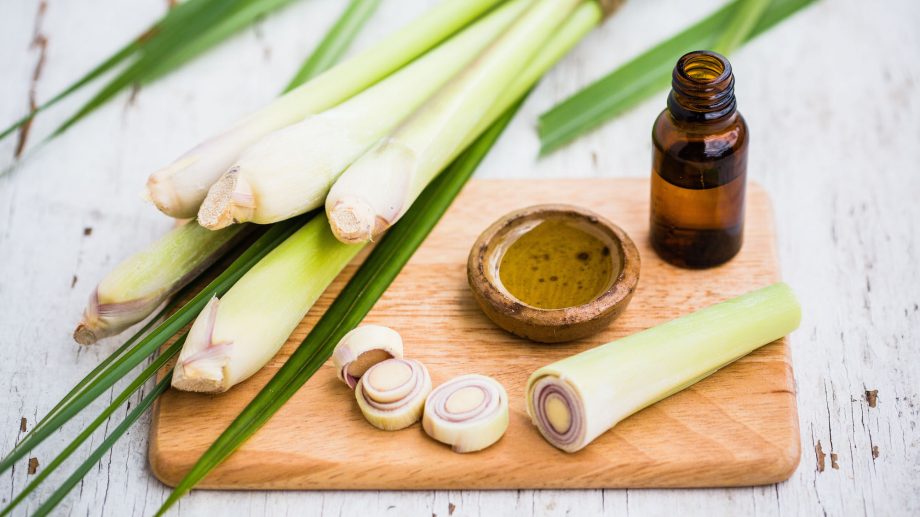

· By Doménica Palacios
The Quali-tea of Lemongrass
Hi there! Welcome to yet another Quali-tea episode! Today, we present you Lemongrass. This is one of our favorite ingredients in the Waku blend. Lemongrass is an herb with a lemony scent. The culinary herb is produced from the stalk of the lemongrass plant (Cymbopogon citratus), which grows in many tropical climates, most notably in Southeast Asia. This plant imparts a flavor of lemon with hints of ginger and has the same essential oil as lemons. It is often used in herbal teas to give a lemon flavor. Fresh lemongrass can have floral and minty notes as well.
Because we want you know as much as you can about our ingredients, here are some fun facts, benefits and uses of Lemongrass:
What is it?

Lemongrass is an herb that is native to Sri Lanka and South India but now grows in many countries around the world. The plant’s stalks are a common ingredient in Asian cooking, but it is also possible to brew lemongrass to make tea. The plant has long leaves that are similar to those of seagrasses. While an estimated 55 species of lemongrass exist, only the East Indian and West Indian varieties are suitable for use in cooking.
What are its benefits and nutritional facts?

Lemongrass might help prevent the growth of some bacteria and yeast because it contains substances that are thought to relieve pain and swelling, reduce fever, improve levels of sugar and cholesterol in the blood, stimulate the uterus and menstrual flow, and have antioxidant properties.
Doctors do know that the tea can help fight against free radicals, thus reducing the incidence of inflammation in the body. Lemongrass contains the inflammation-fighting compounds chlorogenic acid, isoorientin, and swertia japonica. Inflammation is a factor in many adverse health conditions, including pain and heart disease. As such, lemongrass tea could be a beneficial drink for people to incorporate into their diet.
Relieving anxiety: Many people find sipping hot tea to be relaxing, but lemongrass tea may offer further anxiety-reducing properties. According to the Memorial Sloan Kettering Cancer Center, smelling lemongrass may help people with anxiety. Although some people already inhale lemongrass essential oil to relieve stress and anxiety, researchers still need more evidence to be able to confirm this benefit.
Lowering cholesterol: According to an articleTrusted Source in the Journal of Advanced Pharmaceutical Technology & Research, consuming lemongrass extracts appears to lower cholesterol in animals. The study notes that the reaction is dose-dependent. This means that larger quantities of lemongrass might lower cholesterol further.
Preventing infection: According to the Memorial Sloan Kettering Cancer Center, study results suggest that lemongrass may have some infection-preventing capabilities. For example, the herb seems to reduce the incidence of thrush, a fungal infection that commonly affects people with weakened immune systems, such as those with HIV.
Relieving bloating: Drinking lemongrass tea can have diuretic effects, which means that it stimulates the kidneys to release more urine than usual. According to a small-scale study in the Journal of Renal Nutrition, drinking lemongrass tea increases urine output more than other beverages. This diuretic effect on the body can be beneficial in cases where water retention leads to bloating. This is a common symptom of premenstrual syndrome (PMS).
How is it used or how could it be prepared?

The essential oil of lemongrass is used as a fragrance for products including cosmetics, soap, and deodorant. It can also be used in making vitamin A supplements. The citral compound found in lemongrass can act as a natural insect repellent along with its botanical cousin, citronella.
It is possible to make lemongrass tea at home. After purchasing the stalks at a grocery store or herbalist, people can take the following steps to brew their tea:
- 1. Cut the stalks into 1- to 2-inch pieces
- 2. Boil a cup of water
- 3. Pour the boiling water over the lemongrass stalks to steep
- 4. Leave the stalks in the water for at least 5 minutes
- 5. Strain the liquid from the stalks and pour into a teacup
- 6. Adding ice cubes will create a cold lemongrass tea.
The tea should have a fresh, citrusy taste. A person should start with one cup of lemongrass tea per day, then add more to their diet over the next few days if they wish to.
To store fresh lemongrass, wrap it loosely and place it in the refrigerator. It should keep for a few weeks. You can also freeze the whole stalks, or mince the stalks and freeze them in 1-tablespoon portions to use in your recipes. Dried or powdered lemongrass should be stored in airtight containers away from light and heat.
Adverse Effects
Lemongrass is likely safe for most people when used in food amounts. It is possibly safe when taken by mouth, applied to the skin, or inhaled as aromatherapy short-term for medicinal purposes. Rarely, lemongrass oil might cause a rash of skin irritation when applied to the skin. However, there have been some toxic side effects, such as lung problems after inhaling lemongrass and a fatal poisoning after a child swallowed a lemongrass oil-based insect repellent.
There is not enough reliable information about the safety of taking lemongrass if you are pregnant or breast-feeding. Stay on the safe side and avoid use.
References: